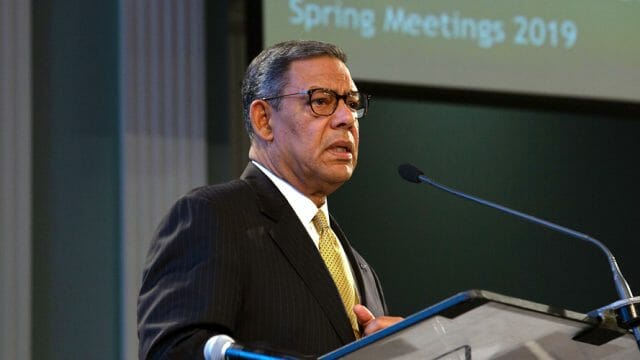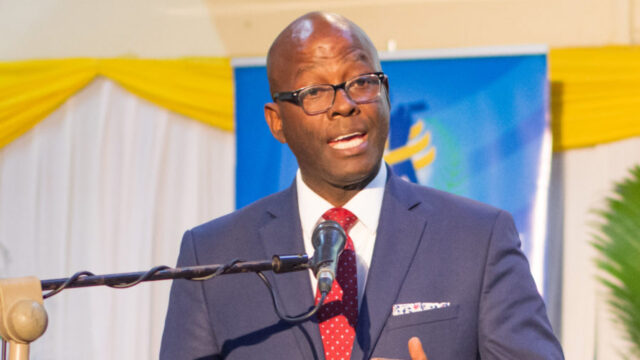The current crisis presents unprecedented opportunities for presenting Jesus to the world.

The weekend that the world woke up to the COVID-19 pandemic saw a wave of closings and radical changes to our daily lives never before seen in the history of humanity.
The same weekend brought a stunning amount of anti-Christian rhetoric online. I am an administrator for more than 50 ministry social media accounts, and my notifications were filled with hateful comments, aggressively mocking us and our collective faith and, in some cases, even blaming Christians and our “foolish” thinking through some convoluted logic that I didn’t bother to try to understand.
What shook me the most was that this behavior was foretold in the Bible. It wasn’t that I didn’t believe the Scriptures, but in my mind, it was always for some far future time. I certainly wasn’t expecting to experience this firsthand on March 15, 2020.
Peter warned us, “Know this first of all, that in the last days mockers will come with their mocking, following after their own lusts, and saying, ‘Where is the promise of His coming? For ever since the fathers fell asleep, all continues just as it was from the beginning of creation’” (2 Pet. 3:3, 4, NASB).
One repeated phrase stuck out for me as I combed through the comments, deleting them and banning hostile people in an effort to protect our faith communities from continued harassment in this time of crisis. I lost count of how many times I read, “Where is your God now?” Over and over again, I saw the same comment, sometimes accompanied by rude pictures mocking our Savior. The hostility from these armchair antagonists was deeply concerning.
But the question remains, “Where is my God now?” In the days that followed, I began to see an immense amount of creativity and innovation emerging from the church as pastors and ministry leaders began to adapt.
I realized that the answer to the mockers’ question is that my God is on the move, while we’re stuck at home.
When fleeing persecution, the early church took the gospel to new regions out of necessity. Two thousand years later, we find ourselves in a similar situation. We must now take the gospel message to the digital mission field and spread our message of hope and wholeness when it is needed most.
We know that God causes all things to work together for good to those who love God, to those who are called according to His purpose (Rom. 8:28).
In Daniel 3, God didn’t deliver the three Hebrew young men from the fire; He delivered them in the fire to act as witnesses to King Nebuchadnezzar and his kingdom.
While in the fire, the three young men came near to God and walked with the pre-incarnate Christ. Their experience served a greater purpose and testifies to us even today. God didn’t create the fire, the persecution, or the pestilence, but He can steer His church in this crisis to accomplish His will for the salvation of souls. He will manifest His power so that the living may know that the Most High rules over humanity (see Dan. 4:17).
It appears that the world is falling apart, and people are paralyzed with fear. Where is God now? God is on the move in every church and in the heart of every digital missionary who is stepping out in faith to accomplish our mission. He doesn’t need us to fulfill His work, but He invites us to work alongside the Holy Spirit. For digital advocates like me, this is a long-awaited and surprising answer to prayer.
Unfortunately, it took a pandemic to motivate the church to embrace digital technologies on a large scale. For people who know that the end is coming, we have dragged our feet too long. COVID-19 is a kick in our complacency and a wake-up call to jump on the digital bandwagon. We have had access to these tools for more than a decade, and I believe the Holy Spirit has been pleading with us to use them.
Previously, many of us advocated for rethinking church in the digital age to meet the needs and expectations of the younger generations. Our voices were often dismissed as too extreme. Overnight the landscape changed; now, we are forced to rethink church without the building for everyone. Perhaps this is the point. We’ve gotten too accustomed to thinking of church as a place to go to for a few hours a week, and not as people in action, striving to improve the well-being of others and spread the good news.
Now is the time to focus on the future and on what the church can become. Until now, those of us advocating for digital technologies have been up against systems and traditions that have been difficult to change. However, these structures and mindsets are quickly becoming obsolete in this new reality.
The current generation no longer has the option of embracing change or leaving it to the next generation. The time is now; otherwise, we will become irrelevant. Change is never easy, but anything is possible with the Lord.
This shock to our society is nothing to fear; God is always with us, and we must continue to embrace this new reality to continue the work. Make no mistake: we are never going back — COVID-19 will fundamentally change how businesses, organizations, and society functions. Everyone across the generations will be forced to utilize digital tools for productivity and daily life.
When this is over, and we can once again embrace our brothers and sisters, we will all have to tighten our belts from the economic fallout. Travel will be a luxury, while the positive impact on the environment may solidify many of our behavioral changes.
Only God knows for sure how this will change the world, but the Bible tells us that this is only the beginning of the birth pains; there is more pestilence and tribulation to come. We may never fully be able to leave physical distancing behind, but time spent in isolation can be filled with seeking for truth and assurance in our messages of hope and wholeness. People will continue to turn to the Internet for companionship, understanding, information, anonymity, and more. We must be the voice that answers back online in these times of crisis and beyond.
COVID-19 is not the end, but it is a warning — a warning to God’s church to wake up and get ready. Jesus is coming, and we haven’t finished the work. This crisis is an opportunity to prepare and mobilize. It’s time for a generation of digital evangelists and disciples to carry the gospel to the digital mission field, which may well be the final mission field. This is our generation’s Great Commission.
The original version of this commentary appeared on the Digital Evangelism blog of the North American Division Social Media and Big Data Services site, sdadata.org.








